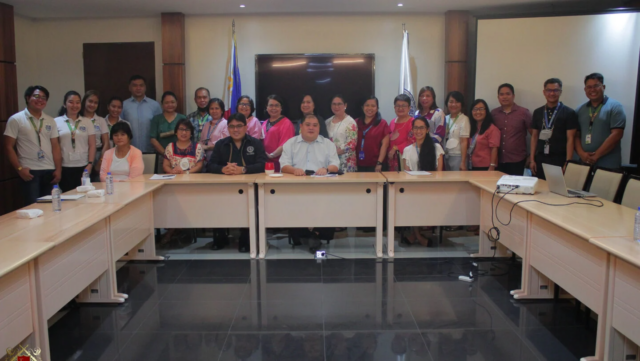UNHCR, DOJ, Columban College sign historic agreement on programme for Rohingya youth


Representatives from UNHCR and the Department of Justice conducted a site visit to the Columban College campus as part of early preparations for the institution’s reception of Complementary Pathways programme beneficiaries. © The Premier Post
UNHCR, the UN Refugee Agency, and the Department of Justice (DOJ) of the Philippines have signed an agreement with Columban College, Inc. (CCI) to allow young Rohingya to enroll at the educational institution as part of a landmark national programme to provide a durable solution for Rohingya refugees in the region.
The agreement is a major step towards implementing the Complementary Pathways (CPath) programme of the Philippines. Set to be launched within the year, the programme will provide select Rohingya refugees displaced in Southeast Asia with a safe and regulated avenue of admission and stay in the Philippines through education, so that their protection needs and basic rights can be met.
Through the programme, the Philippines intends to strengthen the skills and self-reliance capacities of beneficiaries and lead them closer to a durable solution to their displacement – just as with any other refugee hosted in the country.
This Complementary Pathways programme is the first in the world to be created specifically for Rohingya refugees, and the first CPath programme pursued by the Philippines. The agreement was facilitated by the Refugees and Stateless Persons Protection Unit (RSPPU) of the DOJ.
Commending the signing of the agreement, Emily Bojovic, Senior Protection Officer at UNHCR’s Regional Bureau for Asia and the Pacific, said: “As displacement numbers continue to rise globally, we are increasingly seeing the harms brought about by the lack of durable solutions for refugees. Complementary pathways such as this are absolutely vital to help refugees to regain their hopes for the future, to empower and enable them to contribute to the communities around them, and to support them by providing a lasting solution to their displacement.”
As the first educational institution to sign an agreement on the CPath programme with UNHCR and the DOJ, CCI acknowledged the significant role played by education in developing humanity.
CCI President Rev. Fr. Raymann Catindig said: “We perceive education, not only as a powerful tool by which economically and socially marginalized individuals can lift themselves out of poverty, but as an act of hope, one that calls for cooperation in turning a barren and a paralyzing indifference into another way of thinking that recognizes our interdependence.”
The CPath programme is another milestone in the Philippines’ long tradition of extending humanitarian assistance to refugees.
DOJ Chief State Counsel George Ortha II said that although the Philippines has limited resources, especially amid the pandemic, the country has always strived to uphold its humanitarian commitments.
“Despite limitations and challenges, we extend our best efforts based on what we have in order to provide assistance to our most vulnerable brothers and sisters,” he said. “We are going to change lives.”
UNHCR hopes the pilot CPath programme of the Philippines will inspire other countries and institutions to implement similar initiatives for the Rohingya and other refugees, in line with States’ international commitments, including the Global Compact on Refugees and the 2030 Agenda for Sustainable Development.

